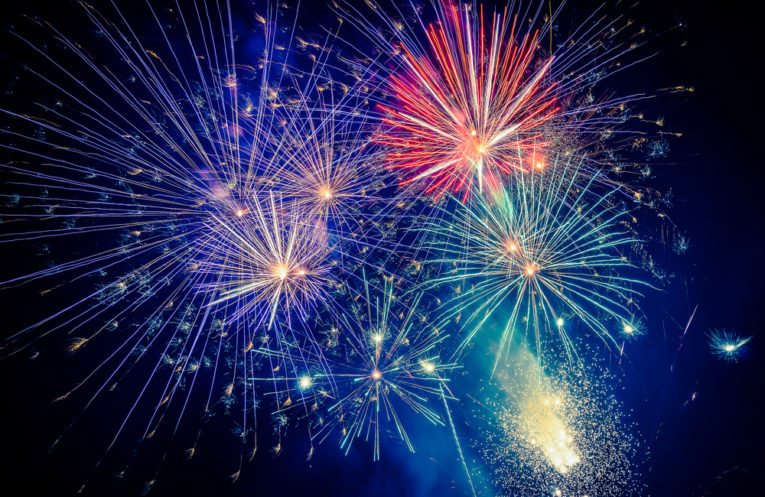Autumn and winter are the main times of the year that fireworks are common, particularly on Guy Fawkes Night and New Years Eve.
As a pet owner you will already be aware that animals are not fond of loud bangs, becoming frightened and unsettled in a way that you're unlikely to see at any other time of the year. There are some simple steps that you can take to try and ease their panic, which work best if planned in advance so that you won’t be caught by surprise when the first Catherine Wheel starts to whirl.

Caring for Pets at Home
- Walk your pets during the day when there is no risk of fireworks. They will usually start after dark, so you can plan this without a problem.
- Avoid leaving your pets alone if you can as they will feel comforted and safe with you close-by. If you know that you have to be elsewhere, consider asking a friend, relative or neighbour to ‘pet-sit’ for a couple of hours.
- Close any windows and close the blinds or curtains. This will help to drown out the sound a little and will reduce the amount of fireworks flashing, which can often be as frightening as the noise.
- Turn on the TV or radio to keep things as normal as possible. This will also provide some background noise as a distraction.
- Create a calm space in your home where your cat or dog can snuggle. Add some extra bedding and keep it away from windows and doors.
- Consider blocking off the catflap for a few days once they venture indoors. This will help you not to worry about them if they are still out and about when the fireworks are going off.
- If your pets live outdoors, consider moving them inside for a few days. If not, cover the cage with a blanket to muffle the noise and flashes.
- Don't punish animals for the way they behave during the fireworks, this will only make it worse in the long run. Comfort them as you normally would, but try not to make it into something out of the ordinary.
- Try anti-anxiety treatments if you think your dog or cat will be distressed by the fireworks. Kalm Aid Calming Tablets for Dogs and Cats is a nutritional supplement that can help to reduce and calm their stress, while the Pet Remedy Natural De-Stress and Calming Kit contains a few different ways of helping your pet with their nerves.
Caring for Horses - Don’t go riding if you know fireworks are scheduled. It is not worth the risk of your horse getting spooked.
- If you are able to put your horse into a stable for the night then do so, to prevent them from being scared by the flashing and noise.
- If possible, stay with your horse until the fireworks are over, they will feel much calmer with your presence.
- Don’t let anyone set off fireworks in fields that you own if you have horses nearby.
The Following MorningRemember to check your garden or patio the following day and be careful on the next day’s walk, as stray firework debris can sometimes end up far from their original destination. Don’t let your dog eat these, but if you can, try to pick them up (check they are not still hot) and put them in the bin. This will help other dog walkers throughout the day.
If you are really concerned about how your pet will react during fireworks, consult your vet who may be able to make further suggestions. Otherwise, with the help of our tips and a little bit of common sense, your pets will hardly be aware of the excitement that is happening outside, feeling safe and cosy in their own home away from the noise.
Sources
https://www.rspca.org.uk/adviceandwelfare/pets/general/fireworks
https://www.pdsa.org.uk/taking-care-of-your-pet/looking-after-your-pet/all-pets/pets-and-fireworks